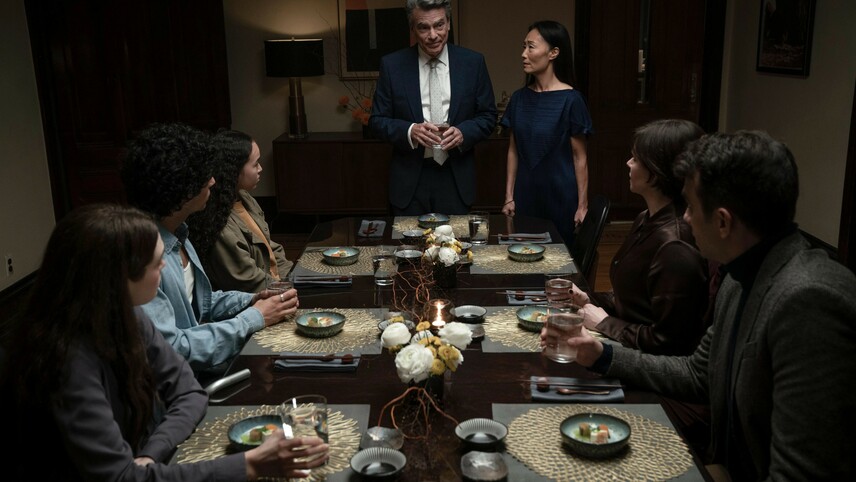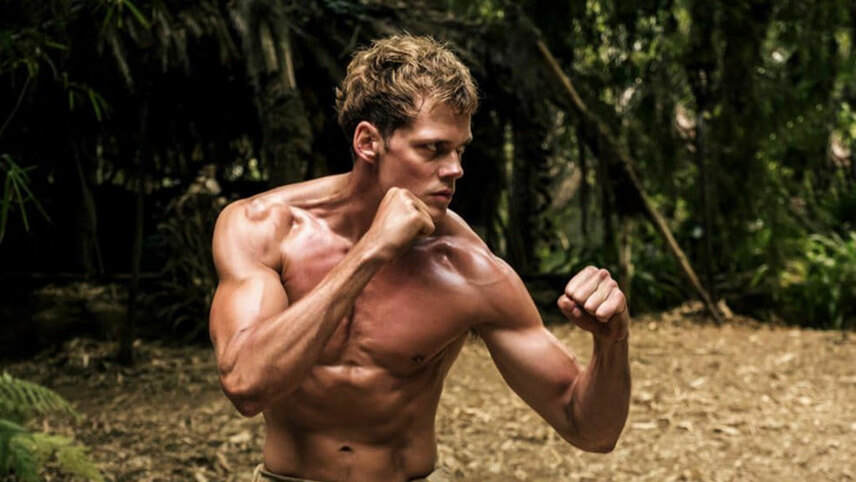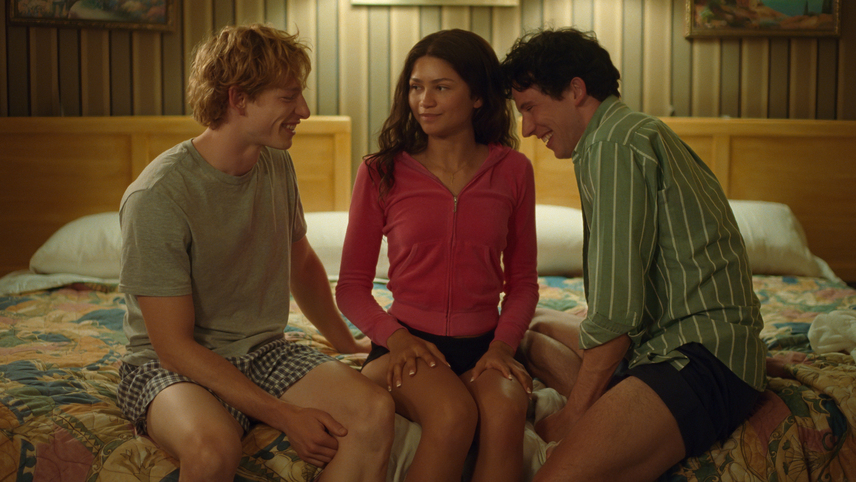![]()
When filmmaker Taika Waititi, known for quirky, heartfelt indies such as Hunt for the Wilderpeople and What We Do in the Shadows, joined the Marvel Cinematic Universe, it felt like a perfect match. His Thor: Ragnarok was a massive step up from the stiff, lifeless solo outings for Chris Hemsworth’s lovable God of Thunder. Waititi’s colorful, Flash Gordon-inspired visuals and playful, cheeky sense of humor finally gave Hemsworth’s hero the film he deserved. In the five years since Ragnarok, Waititi has won an Oscar for his screenplay for his WW2 satire JoJo Rabbit and has proven to be a major figure in Hollywood. Returning to the MCU, Waititi’s follow-up, Love and Thunder, retains many of Waititi’s charms, doubling down on its Saturday morning cartoon tone and upping the hair metal count significantly. Unfortunately, the ratio for soulless construction and vibrant spectacle is 2:1.

If the tone of Thor: Ragnarok was established by Led Zeppelin, Love and Thunder is established by Gun N’ Roses and Dio. Thor, now having lost his entire family, with his homeplace of Asgard now turned into New Asgard, a commercialized little village run by now-King Valkyrie (Tessa Thompson), has since cleaned himself up following the events of Avengers: Endgame. In the time since, he has taken up fighting alongside the Guardians of the Galaxy, who are beyond his himbo antics. When the mysterious Gorr the God Butcher (Christian Bale, making a mighty return to the Superhero genre) attacks New Asgard, taking off with the town’s children, Thor enlists his pal Korg (Waititi), Valkyrie, and his ex-girlfriend Jane Foster (Natalie Portman, returning to the franchise) who has since donned Mjolnir to become the new Mighty Thor, to stop Gorr from opening a gate to Eternity.
Waititi’s ability to match singular laughs with honest, emotional depth has always been one of the New Zealander’s strengths. Here, that fine line is consistently fumbled over. Waititi’s brand of humor is in full swing, and it does work. Hemsworth’s gifts as a comedic actor are still in top-form. Waititi implements the use of new sight gags such as powerful screaming goats, that… well, scream. The cast comradery is on point, with Tessa Thompson’s Valkyrie still proving to be pitch-perfect. Russell Crowe is hysterical making an appearance as the god, Zeus, who loves nothing but living like a god and throwing orgies. Despite the amount of humor that works, it aggressively fights against any genuine emotional gravitas. The film opens with an artful and heart-wrenching sequence of Gorr’s tragic backstory, with Christian Bale delivering a performance that far exceeds what’s typically expected of a Marvel baddie. Bale’s Gorr is a frightening and sadistically playful villain whose performance is emotionally rich and layered. The villain is by far the most interesting character in the film and stands next to Michael B. Jordan’s Killmonger as the best villain in the MCU. When Waititi is exploring the tragedy in his characters, namely Thor and Jane, you can feel the filmmaker reaching for some sort of resonance, and he sometimes gets there. Unfortunately, the cheeky humor undercuts so much of depth, making much of it feel unearned.
Taika Waititi proved with Ragnarok that he can pull off some visually astonishing set pieces that exist almost exclusively in a digital environment. With Love and Thunder, there is one sequence in particular, filmed in monochromatic black and white that is downright stunning. This sequence practically feels like a Frank Miller comic, specifically Sin City, and Waititi saves some of his best compositions for this sequence, as well. However, for every visually unique or inventive sequence, there’s an additional three to four that are just visually repugnant. There are entire sections of Thor: Love and Thunder that don’t look remotely finished, with a staggering amount of poor vfx; a sign that the Marvel machine is, indeed, in full effect.

Marvel’s over-producing is at its most soul-crushing here. The easy thing would be to blame the pandemic, but this has been a consistency in Marvel’s productions for quite some time now. When Chloe Zhao made Kevin Feige discover exteriors and practical locations with Eternals, it felt like a breath of fresh air, but one that also sharply contradicted the Marvel formula. Now, we’ve continued to fall down the rabbit hole of shoddy green screen compositing and fuzzy-looking digital backgrounds. Despite hundreds of millions being thrown at the screen, you’ll be hard-pressed to find a single practical film set. There are entire sequences where its clear the four actors on-screen together aren’t even in the same room. So much of the first hour features the most egregiously inept and lazily produced filmmaking in modern blockbusters, which is saying a lot. There is also no narrative drive until over an hour into the runtime, making that first hour feel much slower than it actually is.
You can never shake the feeling the whole film is rushed from the very beginning. There’s a lack of heart from Thor: Love and Thunder that was most assuredly felt in Ragnarok. Waititi’s direction bounces back and forth between hack job and spurts of inspiration. A majority of the opening 30 minutes feel like deleted scenes from a different movie, with half the Guardians of the Galaxy not having any dialogue. Countless vfx shots stick out as unfinished, but hey, when you overwork and underpay your union-less effects artists, this is what you’re left with. The cinematography can be brutal, with harsh lighting, most notably on Portman, showing the Oscar-winner unnecessarily caked in make-up. Credit where it’s due, Waititi’s progressive values feel genuine. Characters get to own their sexuality and unlike many of Disney’s previously pandering attempts, here it feels natural and not in the studio’s typical three lines of dialogue or screen time that can be easily editing out for international markets kind of way.

Thor: Love and Thunder is a frustrating, often baffling, experience. For every inventive or visually striking sequence, there’s three to four cheap, ugly-looking ones to counter it. Waititi’s usually sharp blend of thrills, cheeky laughs and emotional depth is haphazardly constructed, leaving a mess of a film that has plenty of high marks, but continues Marvel’s soul-crushing sense of filmmaking.








And this is exactly why nobody takes film critics seriously. Your site recommends these boring foreign movies that nobody will remember years front now, but you hate on this.
I loved this movie! My kids had a great time too.
Ragnarok was only a smidgen better than love and thunder. But an enjoyable time none the less. Visually amazing, directing on point, and the story a nice addition to the legacy of my favorite MCU hero.
This can’t be any worse than WW84
Absolutely crushed to not love this movie but it was such a disappointment. Natalie Portman expressed her dismay at several sequences being cut from the film and you can feel it. It’s a shockingly shoddy script that feels painfully tampered with a corporate level. The performances are wonderful but a buff and ready to play Natalie Portman and wickedly creepy and nuanced Christian Bale deserved so much more than what this delivered. The humor was good, the story was rushed and hackneyed and you can’t help but feel like the MCU is drowning under its own weight at this point.
I liked the romance and action in this one.
I’ve never been one to watch the Marvel films but I do like the humor in them when I catch them and I love Russell Crowe. I appreciate this well-thought in-depth review… I might have to watch it just to see what you’re describing for myself! Thanks!
I enjoyed the film. It was a heart warming story that was well executed, at least for me. I also like the cartoony vibe of the franchise so the VFX didn’t bother me. I enjoyed it and look forward to watching it again on Disney+.
certainly a step backwards from the last one, but it didn’t suck taco bell ass like eternals or Morbius
After reading the review I am admittedly still on the fence seeing this film
I enjoyed it. Its wildly inconsistent. The bits that are good are great. There’s bits that genuinely cracked me up..other bits though fell on its arse. Overall entertaining nonsense like most of the stuff marvel put out. I do like the flash Gordon vibe the series has developed as well
I say if you enjoyed Ragnarok you’ll enjoy this film too. It’s definitely a step down down from Ragnarok but you’ll get your kicks from it if you enjoyed that one as the formula isn’t changed up that much from that one to this one except there’s definitely something off in the editing department that makes it feel not completely congealed as a whole imo. Still worth your time if you’re invested at all in the MCU. Better than most. I did appreciate the positive comment towards Zhaos filmmaking as I found Eternals to be maligned for not a lot of great reasonings.
This was the biggest disappointment of phase 4z I had such high hopes for this film after Ragnarock. However, this is one of those films where the directors previous successes lead to no one telling them no. As a result we end up with an overly silly movie with no real stakes and the cast has a ball with the material, but we the audience, less so. ♂️
Great review. I finally got around to the movie and this review puts into word ms what I thought of the movie. I just couldn’t put it in word, the .Oviedo felt off and this review does a great job in exploring that.
Haven’t seen this yet. Not a fan of dumb Thor so really not in rush. I think this will be a Disney Plus watch
100% on point! Very disappointed in the movie especially because it had so much potential to be something amazing but instead we got something that looks like fan made cheap cheesy waste of time.